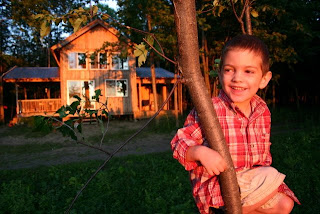
For years, the surest way to get me to lose my reporter's cool was to accuse a newspaper (especially one I was writing for) of printing a story "just to sell papers." This irritated me not only because I'm a journalist, the son of a journalist and the brother of a journalist but because the people who ran newspapers were, so far as I could tell, pretty bad at trying to sell them. When was the last time you saw a story on Britney Spears or some new magical wrinkle cream on the front of The New York Times or The Washington Post, or even in their small-town equivalents? The hundreds of people I know in the newspaper industry did the job because it mattered, or they (we) thought it did.
We always delighted in challenging power, to use the old catch-phrase, comforting the afflicted and afflicting the comfortable. However much that may have satisfied the soul, it was not exactly a prescription for printing money. By and large, we simply were not populists. Newspaper publishers seemed to know this, and instead relied on non-journalists to make money, which was not terribly hard in the days when newspapers were the only broad-based source of real estate ads, classifieds and sports scores in any given city. The news, from a business point of view, probably always came second, and to the extent journalists were crucial to selling newspapers, it was the slow accumulation of credibility that was our most important contribution, not a single sensational story. But while the much-mocked "bean counters" made money, we were free to spend it by pursuing what we imagined were social goods: telling the truth, no matter how uncomfortable it often made the powers that be, or even our own readers. We were insulated. We were naive. We were innocent.
The wave of newspaper closings and layoffs has, I fear, begun to change that forever. The New York Times, of all entities, is
threatening to close The Boston Globe, which was for decades one of the best around, and probably THE best for its market size. Meanwhile The Baltimore Sun, where my father worked for parts of four decades, and where both my brother and I spent time on our way to bigger places, has been gutted beyond recognition. Check out this terribly depressing account by
my old Sun friend Dave Ettlin for the gory details. If I've got this right, The Sun's newsgathering power has declined by more than half from wave after wave of cuts. After you make cop calls or keep up with the Orioles and Ravens, and maybe attend a City Council meeting, what exactly do you have the horses to do? Having spent years overseas, in places that were short on serious, reliable sources of news, I can tell you that their absence undermined serious debate about just about everything.
So if we ever recover as an industry, I can't imagine we'll recover that essential spirit of reckless disregard for the economics of selling news. We all now know, in our guts, what it means when we don't sell papers. And while we've lost our innocence on this, there's little sign this obliviousness to the bottom line is built into the ethic of the webosphere. (About halfway down this David Carr column in the Times, see an appalling a
ccount of attempted news profiteering by a blogger at the Huffington Post.) Every click of a reader’s mouse generates data on what’s a hot topic that day. Simply having all that information operates as a kind of vast bio-feedback mechanism that makes it impossible to ignore the preferences of readers, for better or worse. No reader survey ever could come close to what web diagnostic tools tell newspaper editors every day about what might make their product sell better.
That doesn't mean you'll see stories about Britney or miracle skin cream any time soon on the front page of the Post or the Times. But the new world of free, easy media access has totally rearranged the incentives. A steady accumulation of credibility--of being right, or as close as possible, day after day after day--is worth less and less. The essential stodginess of newspapers, perhaps of serious news itself, seems to be a fatal flaw in an age of constant, rapid-fire sensation, stimulation, entertainment. The next time I hear somebody say, "They're just trying to sell newspapers," I will reply: "I wish."
 Over the last week my family and I have made our annual warm-weather pilgrimage up the hill, to our off-the-grid cabin in the hills of Otsego County, New York, up above Cooperstown. I am writing this on a laptop charged off our car battery, using an Internet signal coming invisibly from a cell tower miles away. We have not one but two iPods, and as of this weekend a battery-powered DVD player. This may not be exactly what Thoreau had in mind...
Over the last week my family and I have made our annual warm-weather pilgrimage up the hill, to our off-the-grid cabin in the hills of Otsego County, New York, up above Cooperstown. I am writing this on a laptop charged off our car battery, using an Internet signal coming invisibly from a cell tower miles away. We have not one but two iPods, and as of this weekend a battery-powered DVD player. This may not be exactly what Thoreau had in mind...



